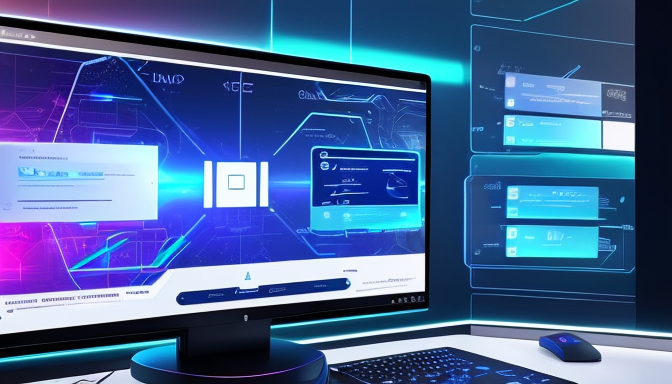Artificial Intelligence (AI) is no longer just a concept from science fiction; it’s a reality that’s reshaping our world. As we stand on the brink of a technological revolution, it’s essential to understand how these advancements will affect our careers. Imagine waking up to find that your job has transformed overnight, with AI tools handling tasks that used to take hours. This shift brings both exciting opportunities and significant challenges for workers across various industries.
As AI technology advances, new job roles are emerging, offering unique opportunities for workers to adapt and thrive in an increasingly automated landscape. For instance, roles like AI trainers, data analysts, and machine learning engineers are becoming more prevalent. Understanding these changes is crucial for career planning. Are you ready to embrace the future? The job market is evolving, and those who can pivot will find themselves at the forefront of innovation. The key is to stay informed about the latest breakthroughs and applications of AI that can enhance productivity.
The rise of AI necessitates a shift in skill sets, emphasizing the importance of technical proficiency and soft skills. Workers must prepare to upskill to remain competitive in the job market. This means not only mastering new technologies but also developing skills like critical thinking, creativity, and emotional intelligence. As machines take over routine tasks, your ability to think outside the box and connect with others will become your greatest asset. Are you ready to invest in yourself to stay relevant? The future is bright for those who are willing to learn and adapt.
Impact on Employment Opportunities
As we stand on the brink of a technological revolution, the impact of artificial intelligence (AI) on employment opportunities is nothing short of astonishing. Imagine a world where mundane tasks are automated, freeing up time for creativity and innovation. This is not just a dream; it’s happening right now! With AI technologies advancing at lightning speed, new job roles are emerging that we couldn’t have fathomed just a few years ago.
For instance, consider the rise of positions like AI trainers and data ethicists. These roles are essential in ensuring that AI systems are not only efficient but also ethical and aligned with human values. As industries adapt to these changes, understanding the evolving landscape is crucial for career planning. Are you ready to embrace these changes? The future is bright for those willing to learn and adapt!
Moreover, companies are increasingly looking for individuals who can bridge the gap between technology and human interaction. This means that soft skills, such as communication and emotional intelligence, are becoming just as important as technical skills. In fact, a recent study showed that 85% of job success comes from having well-developed soft skills. So, while AI might take over some tasks, it also opens doors to new opportunities that require a human touch.
| Emerging Job Roles | Description |
|---|---|
| AI Trainers | Professionals who teach AI systems to understand and process human language. |
| Data Ethicists | Experts who ensure AI systems operate within ethical guidelines. |
| AI Business Strategists | Individuals who integrate AI into business models for enhanced efficiency. |
In summary, while the rise of AI presents challenges, it also paves the way for exciting new job opportunities. The key is to stay informed and adaptable. Are you ready to seize the moment and redefine your career path in this AI-driven world?

Skills Needed for the Future
As we dive into the era of artificial intelligence, it’s clear that the job market is evolving at lightning speed. The question is, are you ready to keep up? With AI taking on more tasks, the demand for certain skills is skyrocketing. It’s not just about knowing how to code anymore; it’s about embracing a broader skill set that combines both technical know-how and soft skills. Think of it as building a toolbox where each tool is essential for the job ahead.
First off, technical skills are a must. Familiarity with AI tools, data analysis, and machine learning is becoming increasingly important. But don’t overlook the power of soft skills! Communication, creativity, and problem-solving are just as crucial. In fact, as machines take over routine tasks, your ability to think critically and collaborate effectively will set you apart from the crowd.
Here’s a quick breakdown of the skills you should focus on:
- Data Literacy: Understanding data and its implications is key.
- Adaptability: The ability to learn new technologies and adjust to changes quickly.
- Emotional Intelligence: Navigating social complexities and managing interpersonal relationships.
In summary, the future job landscape is not just about technical prowess; it’s about blending those skills with a human touch. So, are you ready to upskill and embrace this exciting future? Remember, the journey of a thousand miles begins with a single step!
Frequently Asked Questions
- How is AI changing the job market?
AI is reshaping the job market by automating routine tasks, which can lead to job displacement in some sectors. However, it’s also creating new roles that require different skill sets, allowing workers to pivot into emerging fields.
- What skills should I develop to stay relevant?
To stay competitive, focus on enhancing both technical skills, like data analysis and programming, and soft skills, such as communication and problem-solving. These combined skills will make you a valuable asset in an AI-driven environment.
- Will AI take away all jobs?
While AI will automate certain jobs, it’s unlikely to eliminate all employment opportunities. Instead, it will transform the nature of work, requiring humans to adapt and take on roles that AI cannot fulfill.
- How can I prepare for the future of work?
Start by identifying areas where AI is making an impact in your industry. Engage in lifelong learning, enroll in relevant courses, and seek out experiences that will help you build the skills needed for tomorrow’s workforce.